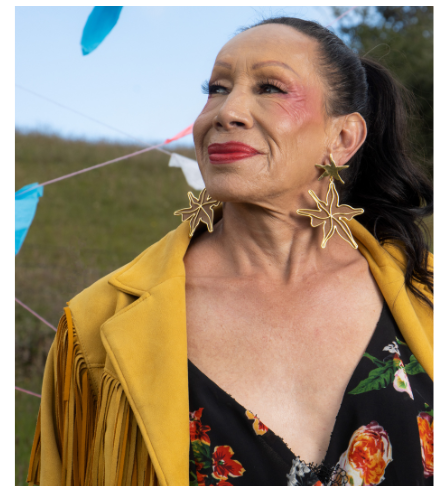Beauty Bait: Have You Fallen For Cosmetic and Skin Care Marketing Messages?
August 4, 2022

So, like most of us, you’ve likely been through a few hard years and are yearning for better times, and maybe a version 2.0 of yourself. Maybe you’ve let your hair go gray, have given up the expensive manicures, and are allowing yourself to live and dress comfortably, rather than to please the perspective or judgment of someone else. And maybe your beauty routine has changed: fewer products, less expensive lotions and potions, back to basics and the essentials. But sometimes it’s hard to resist the ads from the cosmetic and skin care industry. Even if you don’t strive to look “younger” (was that even possible?), you may still want the “best” version of yourself that you can get. And the skincare and cosmetics industries are all too willing to put you on a perpetual path of forever finding and improving your “best” self.
In a new article in Vox, How the anti-aging industry turns you into a customer for life, writer Emily Stewart reveals the tricks and schemes used to lure you into becoming a lifelong purchaser of the latest products promising to have you “look your best,” which may very well be code for “younger.” As an example, she cites the social media presence and celebration of Martha Stewart (who’s willing to admit she’s had some modest cosmetic procedures but denies a full facelift). As Emily Stewart (no relation) points out, we’re celebrating Martha in her 80th year but in many ways, she’s being celebrated because she doesn’t look 80. And that, Stewart, points out, is the problem. The beauty industry may have moved away from the concept of “anti-aging” to “pro-aging” but the reality is that looking younger than your natural age is primarily still the goal. As Emily Stewart makes clear, “That’s a very convenient goal for the industry, because it’s an impossible goal” to attain. But clearly, many of us will spend our money trying. In fact, in the US alone, the “anti-aging” market grew from $3.9 billion in 2016 to $4.9 billion in 2021. That’s a lot of (mostly) women being convinced to celebrate the “best” version of themselves.
And while trying to trick us or lure us into forever fussing with our face and skin, companies also try to lure us with product ingredients that they swear will “reduce” fine lines, “fade” dark spots, or “diminish” wrinkles and creases. A recent article in Healthline helps sort through what are merely buzzwords and what ingredients have actual science and research behind them. The gist of the article is your skin may be better off with fewer and less expensive products if you know the right questions to ask and can sort your way through the scams and the fads. So, for example, next time a new product lures you to the cosmetics counter: Are there dermatologists or peer-reviewed studies on this product? Is it a product your skin can tolerate? Is the product effective for what it’s being marketed for? How does the product work? All good questions to ask and demand responses to before you get scammed into spending too much to attain an impossible goal. For more on the difference between “coconut oil” and ceramides, turn on your makeup mirror and click here. And look here for some ingredients that may actually have some science behind their promises.
Recently, the cosmetics company Avon commissioned a global study of over 7000 women aged 40 and over about their post-pandemic thoughts on aging and beauty. They report that 72% of respondents are more concerned with looking “healthy” rather than younger since the start of the pandemic. Furthermore, they report that 74% of women said the pandemic made them realize how fragile life was and that getting older was something to appreciate. In fact, Avon is moving to re-brand its “anti-aging” products to use the term “authentic” aging rather than anti-aging. But is this truly a revolutionary movement in the cosmetics industry or just a marketing ploy to lure us into looking our best, “authentic” selves? Time will tell, but as Emily Stewart wrote in her Vox article, “We’ve learned to pretend to celebrate older women, but we haven’t learned to accept what happens naturally to their skin.” So “authenticity” will likely be accompanied by its own cosmetics line!







